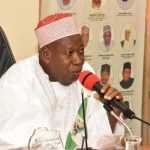Speaking to WALE AKINSELURE, Mr. Fafaa Dan-Princewill, a leader of the Labour Party in Rivers State, discussed the LP’s internal strife, the emergency rule in Rivers State, and its unsolvable political predicament. Excerpts:
The members of your party are divided. What is going on with the three factions that are currently vying for control of the Labour Party?I believe that there is some degree of dysfunction in all of Nigeria’s political parties. In my opinion, we have basically reached a point when political parties have been infiltrated, and individuals with competing agendas are holding significant positions within the parties. The typical disputes that occur within political parties, in my opinion, are also there, but, at their core, the rules of the game are altered with each election cycle, and in this year’s election cycle, the rules made it difficult to settle many of the issues.One important factor is the recent ruling of the Supreme Court. It finally resolves the problem of political parties having the final say in who leads them. Political parties have been in Nigeria for many years, so this makes a lot of sense. This should have been clear from the beginning. One thing we should take away from this, in my opinion, is that we shouldn’t create new rules for every election cycle. This will allow political parties to construct their own set of rules and regulations. Additionally, I think that certain elements, particularly with regard to the Labour Party, likely allowed for one type of complex interpretation or the other. I believe that all groups within the Labour Party, as is the case with all the other parties, should find ways to reconcile with each other and then move forward.
The concern is that some look up to the Labour Party, considering its 2023 feat, to forge a major opposition to the ruling party. With a divided front, can the LP re-create or surpass its 2023 performance in the 2027 election?
The Labour Party has different aspects of strength, and the Nigerian Labour Congress and its support for the Labour Party is a very major asset. The presidential candidate, ex-Anambra Governor, Peter Obi, also came in with a very major support boost, because he has a very large youth followership in the country. Others also joined with their lesser but significant followership across the country, and I think there was also a general feeling for change during the 2023 election. I cannot tell you how each one of those things will play out now or in 2027. Things are a bit fluid, but I think the Labour Party would always be a major player, if united.
Peter Obi has also expressed his openness to a coalition and has been seen making such moves. What is your take on ongoing moves to galvanise a strong coalition to challenge the ruling All Progressives Congress in the 2027 election?
I believe a democracy is most effective when you have a two-party system – those who are for and those who are against. However, I also believe that people have a right to have their various political parties. I don’t think it should be forced, but I think it’s better to have a two-party system. I’m all for a coalition, but you cannot force it on anyone. I believe that the APC did the right thing when they put together a coalition under one brand. It is difficult to have an alliance. A coalition is much better than an alliance. Will it be possible to forge this coalition? I don’t know. I believe that most of the main players have worked together in the past. Former Vice President Atiku Abubakar and ex-Governor Peter Obi were even on a ticket in the past. Rabiu Kwankwaso was also at the party. So they know each other very well, and they know the reasons why they parted ways with different political parties. I believe that a coalition is the best way to go, but who knows?
At their meeting in Oyo State on Monday, the PDP governors welcomed others joining the party but rejected forming a partnership with others. Does the PDP’s position bode well for the effort to form a cohesive, powerful opposition against the ruling party in 2027?
I can’t question the rationale behind any political party’s or governor’s decision to adopt the stance that they have. I don’t understand it, but I believe that each group will decide what is best for the nation and for itself.
It is about a month since an emergency rule was declared in Rivers State. Factoring in the explanation of President Bola Tinubu for his declaration then, was that the right decision at that time?
I cannot second-guess the President on what he termed a “security issue.” I don’t read security reports. I have no access to security reports. But it was a shock to every normal, reasonable person. Perhaps he knew more than what was obvious to the public. I did not see any reason that justified a state of emergency declaration at that time. However, I don’t have access to security reports. In my view, there was no imminent danger at that time. But, as a law-abiding citizen, my approach was to give the benefit of the doubt to the president, probably because he knew more than what was publicly obvious. But the speech itself did not show any real imminent danger. But, the state of emergency was declared, and the state acquiesced, protested, but acquiesced to see how things would unfold. And it is one month now, and I will say that generally, many people of Rivers State are now wondering if it was a political gimmick.
As normal as normal can be. I will say that there have been protests. It is obvious that some protests are sponsored. But the state is watching, and people are giving the Sole Administrator the benefit of the doubt.
Can the President’s intervention be termed a failure on the part of stakeholders like the Southern and Middle Belt Leaders’ Forum, Pan Niger-Delta Forum, Rivers’ Elders or simply down to the unyielding nature of the main dramatis personae in the crisis, Nyesom Wike and Siminalayi Fubara?
I think the roles and responsibilities of the different groups you have mentioned are distinct from the roles of the actual, direct players. I don’t know what the Southern and Middle Belt Forum could have done that they didn’t do. I don’t know what the individuals, separate elders of the state, could have done that they didn’t do. The nature of the dispute between the FCT minister and the Rivers State Governor, whom he put in office, was not the kind of thing that you would expect anyone who was not privy to the details could have resolved. So, I do not blame the elders, especially when they were also in court. When a dispute is in court, you allow the court process to resolve it. I don’t think the dispute itself was so intractable, that was the reason for fear. It was clear that the governor was functioning as a governor, and the matters were in court. I didn’t think there was anything they could have done that they couldn’t do. So, I have no blame for them, whether it is SMBLF, PANDEF or the elders. I have no blame for any of them.
Is the battle for local government structure the main reason for the dispute between Fubara and Wike?
The FCT minister, several times, talked about the issue being a matter of structures, which would be what you are saying as a matter of the local government and all those kinds of elections and all that. Yes, I would say to a large extent that was a major part of the dispute between them. There was also talk about financial matters and the usual politically sensitive issues.
The sole administrator has been making appointments, dissolving, and reconstituting boards. Do you have a feeling that, going by his actions, the emergency rule might last beyond six months?
I think that nobody knows what his terms of reference are or the details of his terms of reference. We don’t have anywhere to look up what the responsibilities, dos and don’ts of the sole administrator are written down. We have no way of knowing what his mandate is or whether he’s exceeding his mandate. The matter is already in court, and the court would be very helpful in defining what his role should be or what his powers are. My approach is to give the benefit of the doubt and to be a responsible citizen, and that’s what I implore all Rivers citizens to do. Let us see how it goes. But I have also said publicly that I do not understand why all political appointments need to be dismantled, especially when they were not part of the dispute between the FCT minister and the governor. For example, as you rightly mentioned, the chairman of the electoral body was sacked. I don’t know what his offence might be or what he has done differently. Is it the mere fact that the person was appointed by the governor that makes the person now illegitimate or compromised? Or are they blaming them for not being part of reconciling the FCT minister and Governor Fubara? I don’t understand it, and there has been no explanation.
So far, little progress seems to have been made regarding reconciling Fubara and Wike. One month out of the initial six months is gone. What should happen in the next five months? Are we likely to have a continuation of the crisis after the emergency rule?
I don’t think you can reconcile people who don’t want to be reconciled, and I don’t know what the terms of the reconciliation would be. So, to be honest with you, the President himself tried to reconcile them via a meeting, but I don’t think it worked. This state of emergency itself is evidence that the President couldn’t reconcile them. So, I am not expecting any major progress. And then, reconcile how? When you are talking about structures, when you are talking about funds, when you are talking about things you are not talking about, that is not the public domain. So, that’s a question only the FCT Minister and Governor Fubara can answer if it’s possible for them to be reconciled and whether or not they will be able to reconcile within the six-month framework.
Eleven PDP Governors have gone to court to challenge the state of emergency. Is this an effort in futility?
I don’t think it can be an effort in futility. I don’t think anyone can say they are not stakeholders, they are not interested parties, or they have no locus. I think they do. They belong to the same political party as Governor Fubara and the FCT Minister – the FCT Minister has not resigned from the PDP, and he’s still a prominent member. I believe the governors have done the right thing, going to court to seek a solution.
There were contentions about your candidature as the governorship candidate of the Labour Party for Rivers State in the last election. For 2027, are you again looking at contesting for the governorship?
To be honest with you, I’m not somebody who contests an election because it is there to be contested. If the circumstances are right, if the people whose opinions matter to me want me to contest or not, I would always put that as a major factor, but I will make that decision when the time is right. I believe that the political platform you contest on is important and, as things are now in Nigeria, even that can change at any moment. It is not set in stone what political platform you can run on or whether or not you would run. If the Labour Party is extremely divisive and if it would entail going through what I went through in the last election, where there was all sorts of confusion even about the ticket, I’m not at all interested in unnecessary controversies. The party was going through its fundamental problems, otherwise, the circumstances of that were enough for me to get angry and leave the party. Beyond my pursuit, there were many reasons why the party was so dysfunctional. Even at that, the party did very well. In my state, when the time is right, I will talk with people across all the political parties, and I will decide what my role should be.



